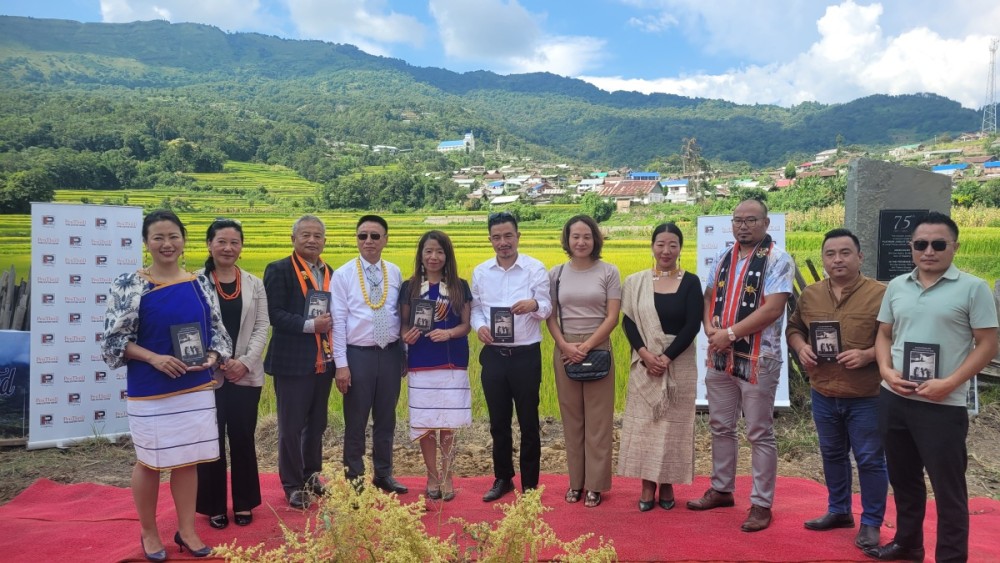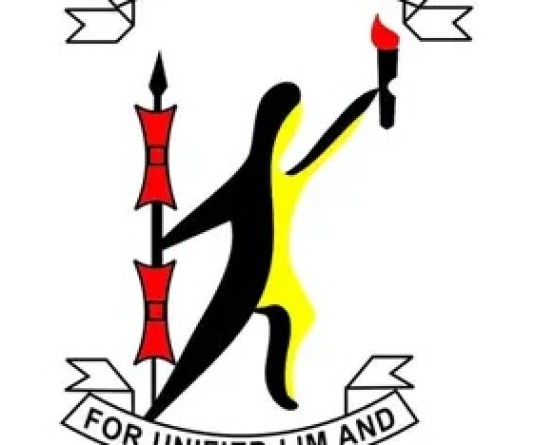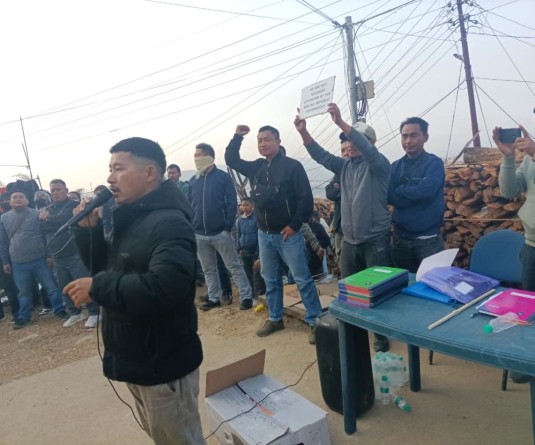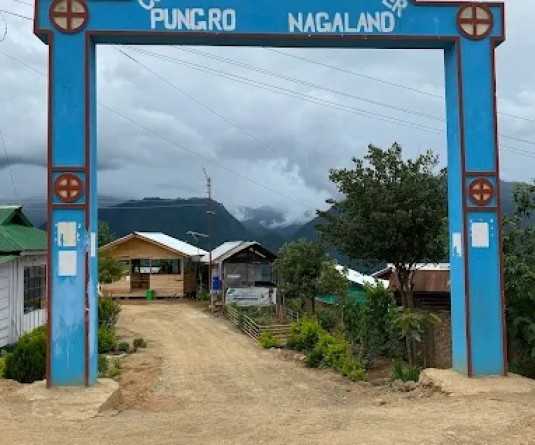Vezuhu Keyho with author Vishii Rita Krocha and others during book launch on “Tales from the enchanted village” at Zhavame village on September 20. (Morung Photo)

Our Correspondent
Kohima | September 21
A book on “Tales from the enchanted village” by Vishü Rita Krocha under Penthrill Publication was launched on September 20 at Zhavame village under Phek district.
The book was formally released by Chakhesang Public Organization (CPO) President Vezuhu Keyho in the presence of Medovi Rhi, President Naga Students’ Federation (NSF) and Dr Theyiesinuo Keditsu, feminist poet, academic, writer and educator (a.k.a.mekhalamama).
Congratulating Krocha for launching this story book, Keyho maintained that her book will go a long way in promoting and preserving the Naga culture and literature. Keyho informed that the CPO has been encouraging the people to go for research and documentation of the Naga lifestyles and culture. CPO had already published a book on customary law and the second edition will be released soon, he said.
In Author’s note, Krocha stated that the stories in this collection are a result of a memorable life spent with the grandparents, who were also natural storytellers.
“It took years of sitting down with them, especially with my maternal grandfather and paternal grandmother, who lived to be 94 and 104 respectively-a lifespan that I continue to marvel at,” she said.
These stories carry their legacy and the legacy of my native land that I wholly love, she said.
Zhavame literally means “people of the enchanted lake”, and this is the very inspiration of the book title, she said.
“These tales, they carry the lives of a time that I did not live in but in a strange way, I recognize the smell, the sound, the taste, the air, and the very soil they toiled in. They represent my homeland and my people, and retelling these stories is my way of preserving the richness of my native village. And so, to the enchanted village,” Krocha said.
Making remarks on the book, Dr Theyiesinuo Keditsu said “This book is not just a collection of folktales; it is an invitation to rethink how we read, listen, and understand. It calls us to embrace disorientation as a necessary part of the reading experience.”
This collection offers a glimpse into the communal imagination of Zhavame-a time and space that feels almost mythical, where animals, humans, and spirits existed in a vital yet wary awareness of one another, she said adding “This is not the romanticized coexistence often depicted in narratives of nature, but one marked by mutual respect, born out of recognizing interdependence and shared influence. In these stories, the boundaries between the human and non-human world are porous and ever-shifting.”
The “folk” of Zhavame offer a critical re-vision of co-dependency, recognizing that all beings are entangled, shaping one another. These tales challenge us to rethink our relationships with the world, acknowledging our dependence on forces we may not fully understand, she said.
‘Let us honor the power of words to heal, inspire, unite’
Talking on “Preserving our stories,” Medovi Rhi said “This book is a testament to the enduring spirit of our people, a celebration of our stories, and an offering to generations yet to come.”
Our stories are not just folklore or fables; they are living documents of our history, customs, and values, Rhi said adding “They hold within them the essence of our way of life, and through them, we preserve the heart and soul of our Naga identity.”
For generations, storytelling has been the medium through which we have passed down our history. These are not histories written in textbooks or chronicled in official records but are instead woven into the fabric of our everyday lives-shared by the fireside, sung in the fields, whispered in moments of quiet reverence, he said.
“As Nagas, our stories are inseparable from our traditions and customs. In them, we find the core values that define who we are: the importance of community, the respect for elders, the love for our land, and the spirit of resilience. Whether it is through tales of warriors who defended our villages or through the simple, yet profound stories of everyday life, our narratives have always reflected our moral compass-one that values honor, kinship, and justice.” Rhi said.
As we embrace the future, we must also remain rooted in the wisdom of our ancestors, he said.
He said that NSF is deeply committed to the preservation of “our heritage, and we believe that our stories are a powerful tool in this noble crusade. They are the bridge between the past and the present, the key to understanding who we are, and the means by which we will continue to pass on our values to future generations.”
Today, as we celebrate the launch of “Tales from the Enchanted Village”, let us also celebrate the act of storytelling itself. Let us honor the power of words to heal, to inspire, and to unite. And most importantly, let us commit ourselves to the preservation of our stories, for in doing so, we are preserving the very essence of who we are as a people, Rhi said.
The programme was chaired by Rekha Rose Dukru, proprietor of The Majestic Kapamodzü. The programme witnessed story telling through folksong by Rapri Pohena while Peme Women Group and Dume Menfolk presented folk song. Dr Thebi Joseph Shupao and Thorhü Movi performed scene enactment from “Tales from the Enchanted Village.”






